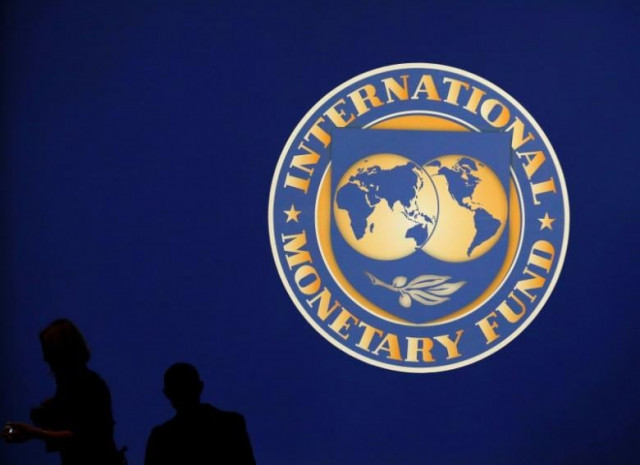Pakistan may soon be ineligible for World Bank loans
Reserves should be enough for 3 months of imports to qualify for IBRD’s assistance

PHOTO: REUTERS
One of the key conditions for qualifying for IBRD loans is that the loan-seeking country should have official foreign currency reserves equivalent to three months of import bill.
Pakistan was touching that border line as its reserves stood at $14.3 billion on August 4, 2017.
IMF, Pakistan fail to see eye to eye in assessment of economy
These reserves include $3.9 billion in short-term borrowings by the central bank. By excluding the short-term forward contracts, the State Bank of Pakistan’s (SBP) net reserves will come down to $10.4 billion, according to the central bank data.
Sources in a multilateral lending agency and the Ministry of Finance told The Express Tribune that gross foreign currency reserves may slip below the threshold of three-month import cover either in the last week of August or the first week of September.
In order to rein in the declining reserves, the Ministry of Finance will have to immediately look for ways to ramp up the critical pool of foreign currency. Since the end of the International Monetary Fund’s (IMF) assistance programme 11 months ago, Pakistan’s official foreign currency reserves have dropped $4.2 billion.
Responding to the development, a spokesman for the Ministry of Finance said the SBP’s reserves totalled $14.398 billion on August 4, 2017, which were adequate for 3.2 months of imports.
He pointed out that an export package of Rs180 billion and improved global economic outlook had caused about 10.5% increase in exports in July 2017 compared to the same month of previous year. Apart from this, remittances from overseas Pakistanis have shown a healthy growth of 16% in July 2017.
As exports and remittances returned to the growth zone, the spokesman said, the government expected a significant increase in foreign direct investment and other inflows including official ones.
“With increased inflows together with expected reduction in non-essential imports due to the imposition of regulatory duty in the Finance Bill 2017, the SBP reserves are expected to strengthen in coming months,” he said.
Furthermore, the government was also working on more measures, which would be rolled out after finalisation, said the spokesman.
Ministry sources revealed that the government was reviewing different options to keep the reserves above the three-month import bill. These included incentives for expatriates to invest in Pakistani dollar-denominated bonds, more restrictions on imports and steps that will encourage exporters to bring back export proceeds.
IMF data bloats Pakistan forex reserves by $3bn
The last three-month (May-July) import bill of Pakistan stood at $14.5 billion, showed the data compiled by the Pakistan Bureau of Statistics.
In the previous fiscal year, Pakistan’s total imports swelled to a record $53 billion and keeping that in view, the three-month average imports came in at $13.3 billion.
The IBRD lending had been stopped for most of the tenure of the previous PPP government and the World Bank Group restored it less than two years ago. The IBRD suspension carries implications for both project and programme financing.
The IBRD financing is relatively expensive and is usually linked with changes in the recipient country’s economic and financial policies.
The World Bank Group comprises five institutions. Its two arms - the IBRD and International Development Association (IDA) - give loans to governments.
The IBRD offers loans for projects, programmes or policy purpose as well as hedging products to help manage the currency and interest rate risk exposures.
IDA is a concessionary lending window that extends funds to the poorest developing countries.
In case, Pakistan is disqualified, its borrowing from the World Bank Group will be limited to the IDA, from where it can borrow only according to the quota.
Pakistan is among the few countries that qualify for both the IDA and IBRD assistance due to its creditworthiness.
Sources said if the World Bank stopped Pakistan from IBRD borrowing, it would also have implications for the country’s creditworthiness. Lenders define creditworthiness as “the ability to service new external debt at market interest rates over the long term”.
The World Bank has already declined to give policy loans to Pakistan until it depreciates the rupee against the US dollar. The bank’s decision reflected deterioration in the country’s external sector that was posing challenges to macroeconomic stability.
However, the Ministry of Finance insisted that dialogue with the bank for policy lending was under way and the exchange rate policy did not fall within the bank’s domain.
Published in The Express Tribune, August 15th, 2017.
Like Business on Facebook, follow @TribuneBiz on Twitter to stay informed and join in the conversation.



















COMMENTS
Comments are moderated and generally will be posted if they are on-topic and not abusive.
For more information, please see our Comments FAQ